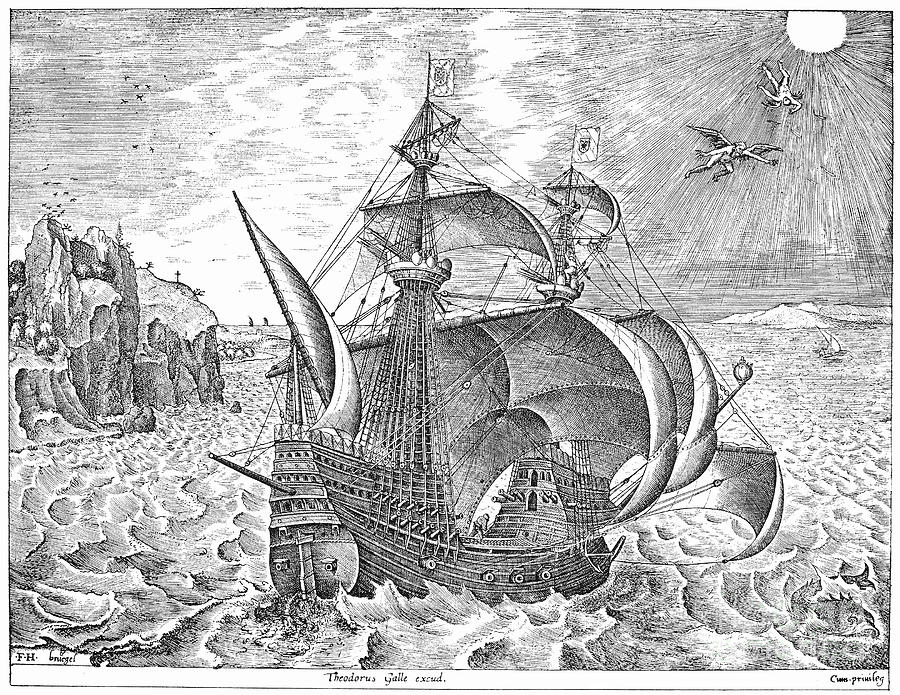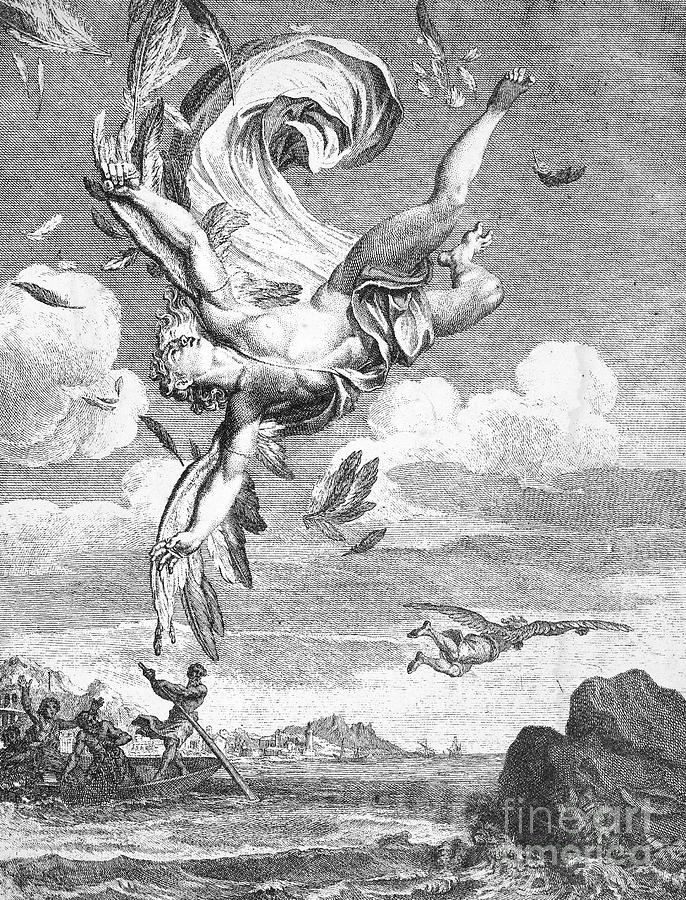
Ovid's treatment of the Icarus myth and its connection with that of Phaethon influenced the mythological tradition in English literature as received and interpreted by major writers including Chaucer, Marlowe, Shakespeare, Milton, and Joyce. Afterwards, it was Helios who named the Icarian sea after Icarus. According to scholia on Euripides, Icarus fashioned himself greater than Helios the Sun himself, and the god punished him by directing his powerful rays at him, melting the wax. Today, the supposed site of his burial on the island bears his name, and the sea near Icaria in which he drowned is called the Icarian Sea.

Daedalus wept for his son and called the nearest land Icaria (an island southwest of Samos) in the memory of him.

Icarus kept flapping his "wings", but he had no feathers left and was only flapping his bare arms. One by one, Icarus's feathers fell like snowflakes. And without warning, the heat (from the sun) melted the wax holding his feathers together. (Daedalus -in his warning- said to Icarus, "For the fogs about the earth may weigh you down and the blaze from the sun are going to melt your feathers apart".) Overcome by giddiness while flying, Icarus (who disobeyed his father) soared into the sky trying to quench his thirst.

But before trying to escape the island, he warned his son not to fly too close to the sun, nor too close to the sea, but to follow his path of flight. Minos imprisoned Daedalus himself in the labyrinth because he gave Minos's daughter, Ariadne, a clew (or ball of string) in order to help Theseus, the enemy of Minos, to survive the Labyrinth and defeat the Minotaur.ĭaedalus fashioned two pairs of wings out of wax and feathers for himself and his son. Icarus's father Daedalus, a very talented Athenian craftsman, built the Labyrinth for King Minos of Crete near his palace at Knossos to imprison the Minotaur, a half-man, half-bull monster born of his wife and the Cretan bull.


 0 kommentar(er)
0 kommentar(er)
